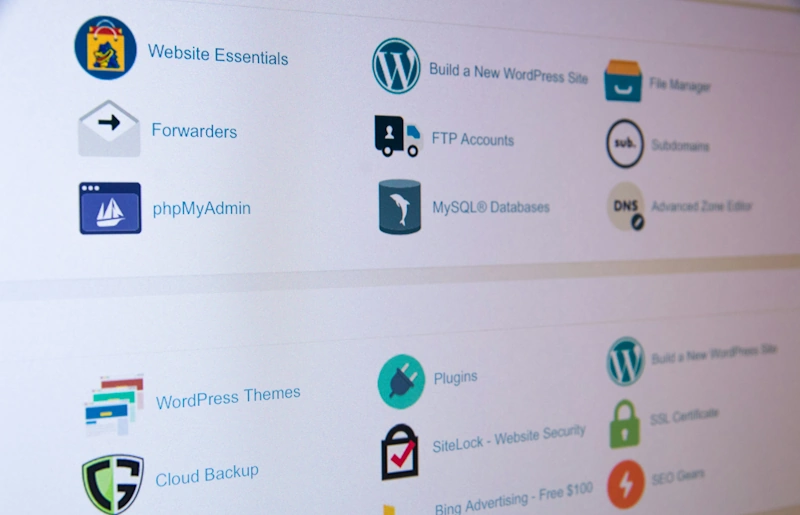Een CMS, of content management system, is een softwaretoepassing die het mogelijk maakt om eenvoudig content te creëren, beheren en bewerken op een website zonder dat er diepgaande technische kennis nodig is. Het is ontworpen om de gebruikerservaring te verbeteren en het proces van websitebeheer te vereenvoudigen.
What is a CMS?
A CMS, or Content Management System, is software die gebruikers helpt bij het creëren, beheren en bewerken van inhoud op een website zonder dat gespecialiseerde technische kennis nodig is.
CMS = content management system
A CMS is short for content management system. It is a tool designed to make managing a website's content easier and more accessible.
A CMS for websites
Met een CMS voor websites kunnen gebruikers eenvoudig pagina’s maken, bewerken en verwijderen. Het biedt sjablonen en plugins om de functionaliteit van de site uit te breiden.
A CMS for web shops
Webshop CMS’en zoals PrestaShop en Magento zijn specifiek ontworpen voor e-commerce, waardoor gebruikers producten kunnen toevoegen, bestellingen kunnen beheren en betalingen kunnen verwerken.
WordPress
WordPress is een van de meest populaire CMS-platforms ter wereld. Het wordt gebruikt voor zowel eenvoudige blogs als complexe websites en biedt duizenden thema’s en plugins.
Benefits of a CMS
Een CMS biedt talloze voordelen, waaronder gebruiksvriendelijkheid, flexibiliteit en schaalbaarheid. Het stelt gebruikers in staat om snel en efficiënt content te publiceren en bij te werken zonder dat technische kennis vereist is.
What is the best CMS?
The best CMS depends on the user's specific needs and goals. WordPress is ideal for blogs and simple websites, while Magento and PrestaShop are better suited for e-commerce.S?
What CMS systems are there?
There are several types of CMS systems available, each with their own unique features and benefits.
1. Headless
A headless CMS separates the backend from the frontend, offering more flexibility in design and content delivery.
2. Proprietary
Proprietary CMS’en zijn commerciële systemen die meestal worden geleverd met ondersteuning en regelmatige updates.
3. Open-source
Open-source CMS’en zoals WordPress en Joomla! zijn gratis te gebruiken en aan te passen, wat een grote gemeenschap van ontwikkelaars en gebruikers aantrekt.
4. E-commerce
E-commerce CMS’en zoals PrestaShop en Magento zijn speciaal ontworpen voor online winkels en bieden uitgebreide functies voor productbeheer en betalingsverwerking.
5. SaaS
SaaS (Software as a Service) CMS’en zoals Shopify bieden een gehoste oplossing, waardoor gebruikers zich geen zorgen hoeven te maken over serverbeheer en updates.
Examples of a CMS
There are many different CMS platforms available, each with its own advantages and applications.
WordPress
WordPress is het meest populaire CMS ter wereld, bekend om zijn flexibiliteit en uitgebreide bibliotheek van thema’s en plugins.
Drupal
Drupal is a powerful open-source CMS used for complex websites with many functionalities.
Joomla!
Joomla! offers a good balance between usability and flexibility, and is suitable for both beginners and advanced users.
PrestaShop
A CMS provides an easy way to manage content without technical knowledge, saving time and costs for individuals and businesses.
Why not use a CMS?
Sommige gebruikers geven de voorkeur aan op maat gemaakte oplossingen die specifiek zijn afgestemd op hun unieke behoeften en niet de beperkingen hebben die sommige CMS’en kunnen hebben.
What do you need to use a CMS?
Om een CMS te gebruiken, heb je een webhostingaccount, een domeinnaam en een basiskennis van websitebeheer nodig. De meeste CMS’en bieden echter uitgebreide documentatie en ondersteuning om je op weg te helpen.
Create your website with a CMS
With a CMS, you can easily and quickly create a professional website that meets all your needs. At Dalpha Media, we are happy to help you set up and optimize your website.





